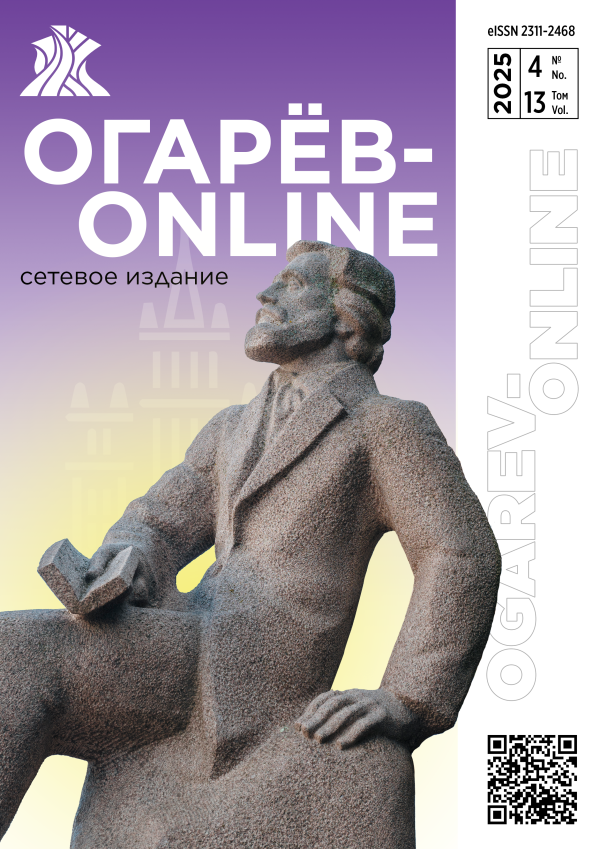Vol 5, No 14 (2017)
- Year: 2017
- Published: 30.10.2017
- Articles: 10
- URL: https://ogarev-online.ru/2311-2468/issue/view/18551
Full Issue






Lexico-grammatical techniques of language manipulation in English sports newspaper articles
Abstract
The article provides the results of a lexico-grammatical analysis of the techniques of language manipulation in the English sports discourse. The study is based on English sports newspaper articles. It is concluded that a great variety of lexico-grammatical means is used to influence the reader.




Theory of equivalence in modern translation studies
Abstract
This article deals with the interpretations of the theory of equivalence by modern Russian researchers of translation and interpretation. The authors carry out a comparative analysis of interpretations of the term of equivalence. The study reveals general and specific features of the phenomenon as well as individual opinions of the researchers on the issue.


Linguocultural peculiarities of compliment as a speech genre: a comparative study of spanish and english languages
Abstract
The peculiar features of the complement typical for English and Spanish cultures are studied. A comparative analysis of culturally determined features of compliments is carried out, taking into account such criteria as the style of communication, the main function of the compliment, communicative intentions, social status of the addresser and the addressee.




Transformations of film titles in translation from English into Russian
Abstract
The article considers some translation difficulties occurring at translating of film titles from English into Russian. The author describes the types of lexical and grammatical transformations used to translate film titles. The most convenient and effective translation techniques are identified.


Recipient factor in translation
Abstract
The article considers the factor of recipient in translation. A review of relevant linguistic literature is provided. In the context of translation studies, on the one hand, the texts of the original and the translation are linked. On the other hand, they to some extent exist in their own cultural and linguistic spaces. The texts of the original and the translation differ by their recipients.

















